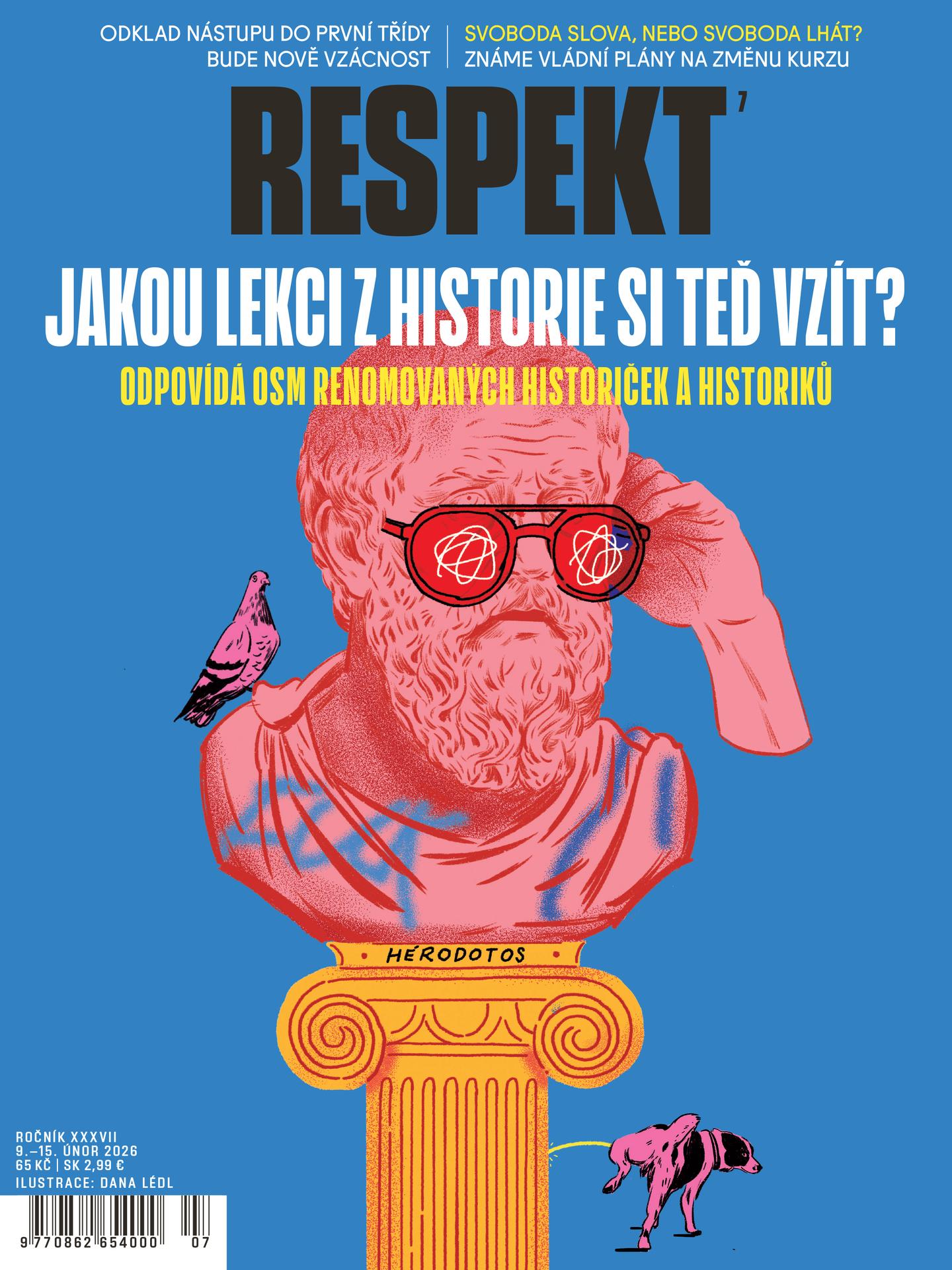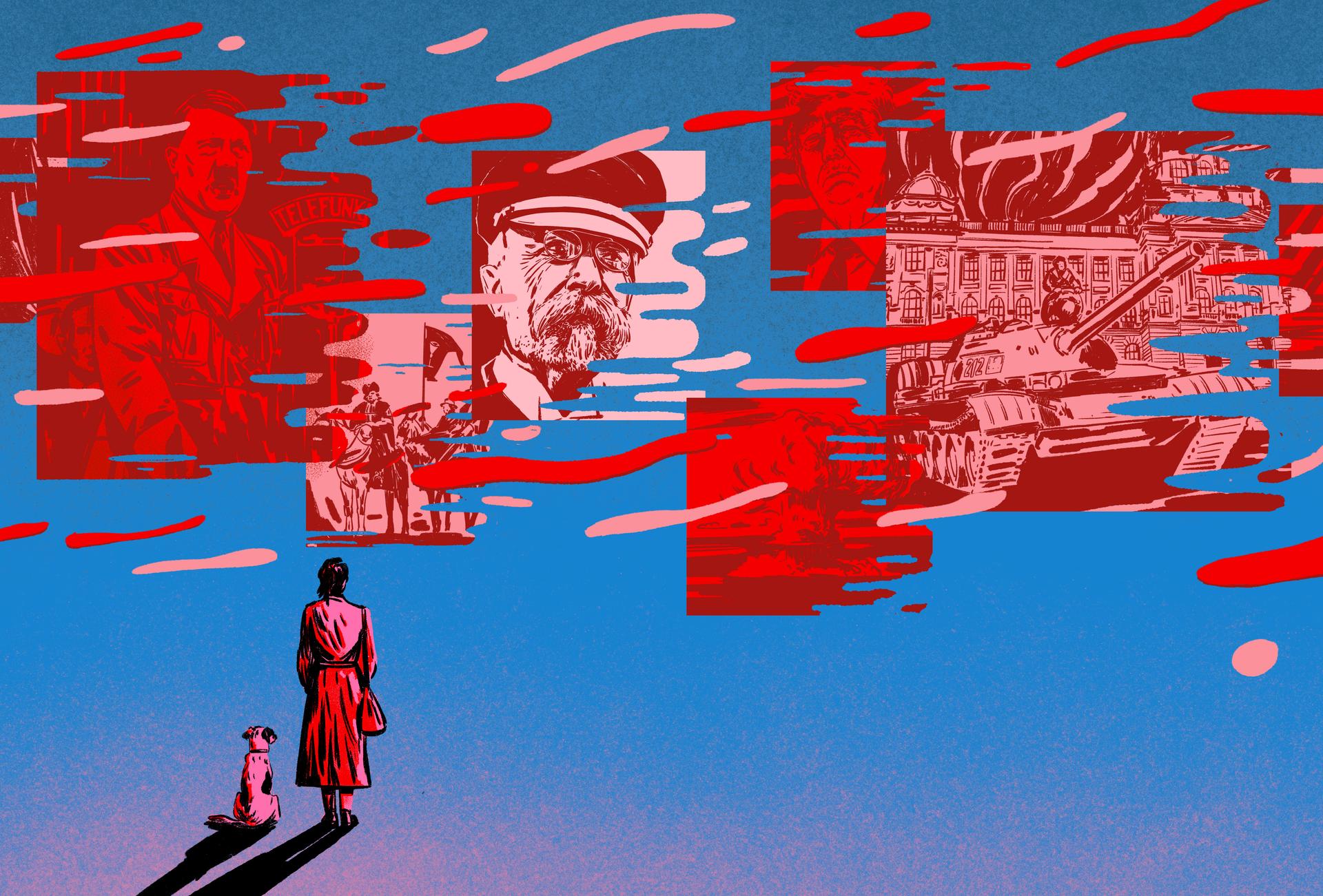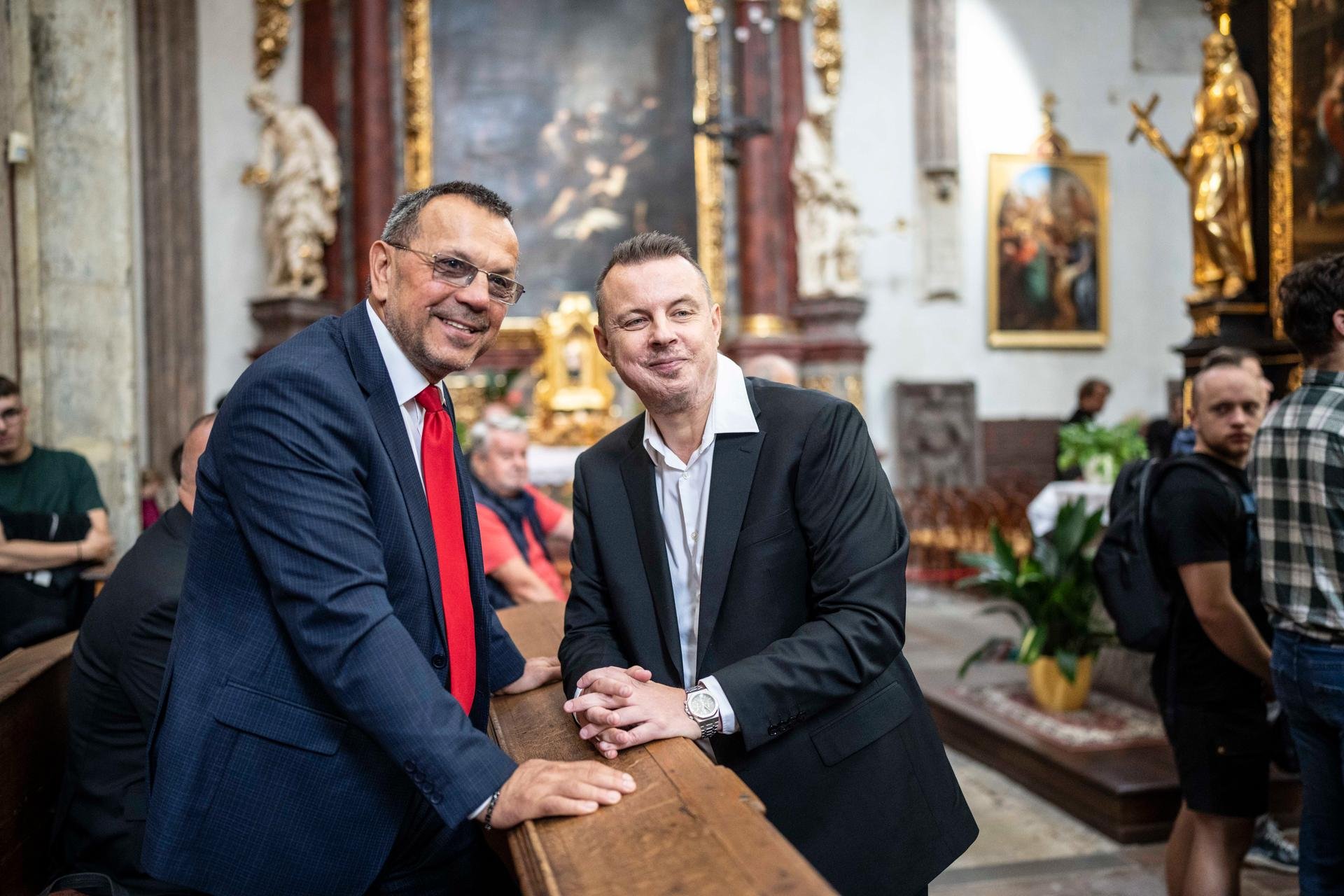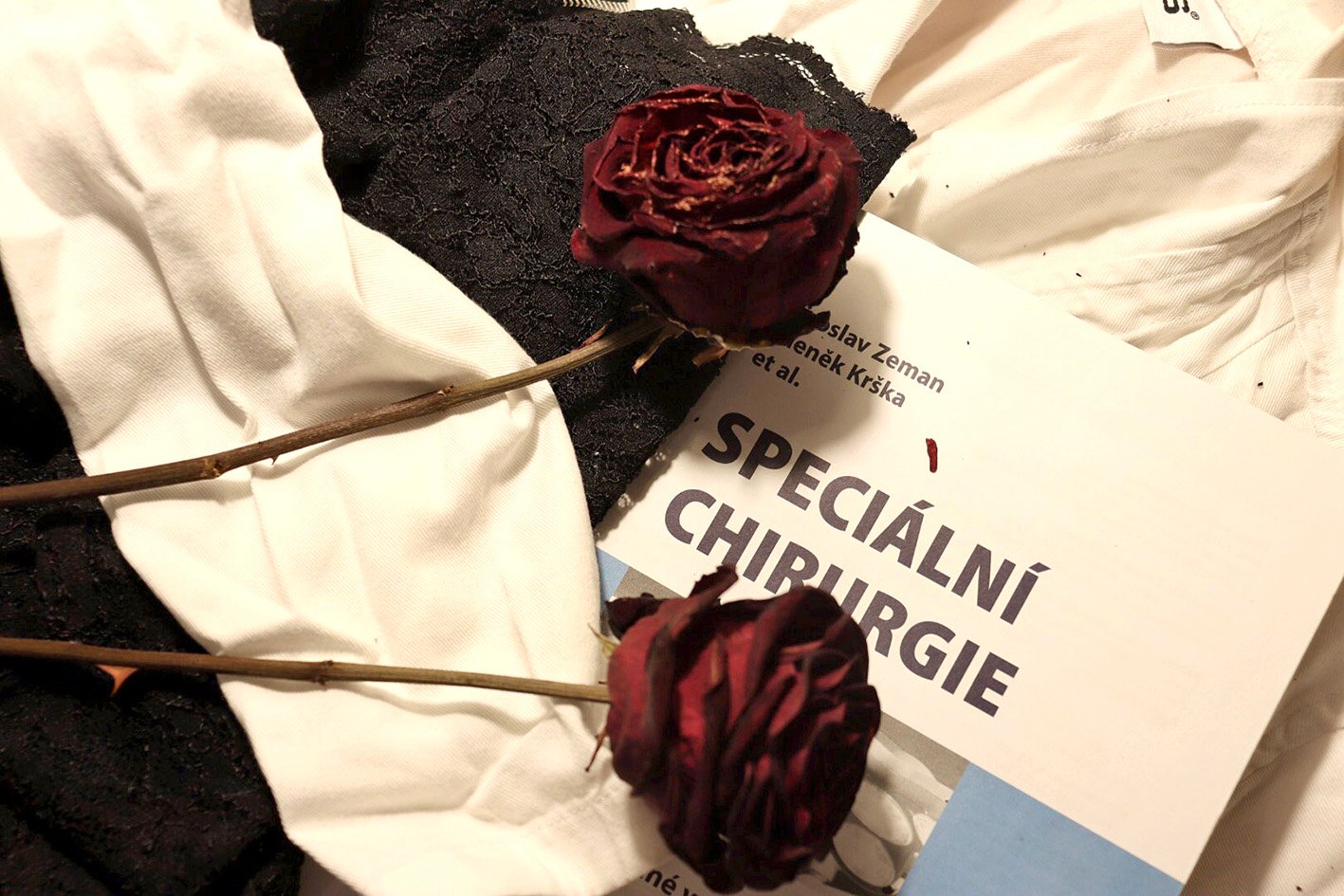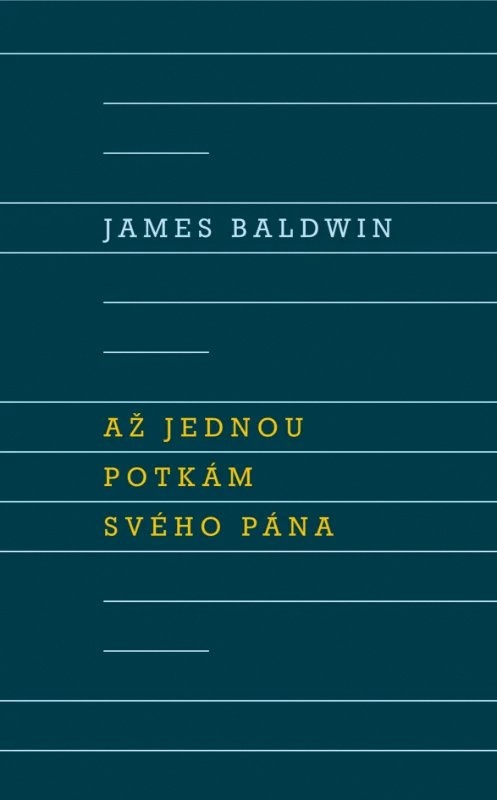Czechs in Time of COVID: The Entrepreneur
“It seems like I’ll be working for free for the next three years to save the firm,” says a leading light in the Czech clothing industry
There is always work to do even if your firm is closed, and sometimes there’s even reason to celebrate. Ladislav Blazek, the owner of a prominent men’s clothier in the Czech Republic, had just such a day last Tuesday.
Just before noon his lawyer informed him that notice of the firm’s going into receivership was now officially posted in the court register. That doesn’t sound like a reason to be glad, at first. However, receivership does not mean closure, but the possibility of reaching an agreement with creditors to forgive part of his debt and give Blazek one more chance. It’s bit of a happy ending, at least for the moment.
“That took half a year of work,” the boss and owner of the firm says with relief.


His tailoring workshop in the center of Prague has been the only part of his operation to stay open after the compulsory closure of his retail outlets under lockdown restrictions. Blazek starts on a bottle of Italian wine to celebrate the news, but not with any great rejoicing – the 52-year-old entrepreneur makes no secret that he’s achieved more of an emergency solution than the triumph of a lifetime.
The goal he has just achieved, in the language of bankruptcy law, is called reorganization, and it means Blazek now will have a bankruptcy administrator supervising him in the firm, armed with the whip of a recovery plan. He began writing the plan last summer when it was clear the pandemic would flatten the entire fashion industry. He agreed with his bank and most of his creditors on a plan to forgive most of his 87 million crown ($4 million) debt and write it off as losses. They have done so in the hope that the continuing functioning of the company will yield them at least something – or rather, more than if they had immediately sent it into bankruptcy and healed their wounds just by selling off the assets.
The bankruptcy administrator will supervise the firm’s operations for three years, and Blazek has promised to return 24 million crowns to his creditors during that time – less than a third of his debt. Then he’ll be free. Theoretically he could even make more money than that and keep whatever was left over, but he’s not betting much on that outcome.
“It seems more like I’ll be working for free for the next three years to save the firm,” is his perspective on the enterprise which has operated under his name for 30 years.
His first experience with the coronavirus came last February at a fabric fair in Milan. “Even at that point, the atmosphere there was horribly wrong,” Blazek recalls.
He returned from the trip paralyzed by such a strong “flu” that he didn’t even try to drive himself home from the airport. He got to know the potency of the disease right at the beginning, but back then he didn’t realize – just like everybody else – how powerful the pandemic would be. Then, in March, shortly after stocking the new spring and summer collection and signing orders for material for the fall collection, came the government order that meant the closure of his 25 clothing shops.
“That all happened at the absolutely least appropriate time,” Blazek says today. The second lockdown arrived in the autumn, in the middle of the next season, by which time it was clear that men’s suits and shirts were far down the shopping lists of most of the people who had been shut up at home all year on teleconferences.
The firm got compensation from the state for wages and part of its lease payments, but that had no influence on saving the millions of crowns sunk into materials. That reality pushed Blazek to begin negotiating his fate with his creditors last year. The salesrooms have remained closed by official order, a hundred salespeople are staying home with government support, and he is waiting to see what the government’s position will be on compensating lease payments for the last quarter, which is not definitively clear as of this writing.
On the other hand, it is clear that once the screws are loosened, the firm will no longer be run as it used to be. There will be fewer salesrooms, and a new, more flexible purchase regime will have to be established with suppliers so Blazek doesn’t have to finance the entire collection himself. The e-shop will have to be redesigned, as well as his entire approach toward online sales in general. Informal clothing will become more important to the line.
“I feel a bit like when I began in the ’90s,” Blazek says of this new start. “This time though, I have to manage the firm strictly via the profit and loss statement, not from the heart like I did before.”
Překlad Gwendolyn Albert. Vychází ve spolupráci s TransitionsOnline
Pokud jste v článku našli chybu, napište nám prosím na [email protected].

